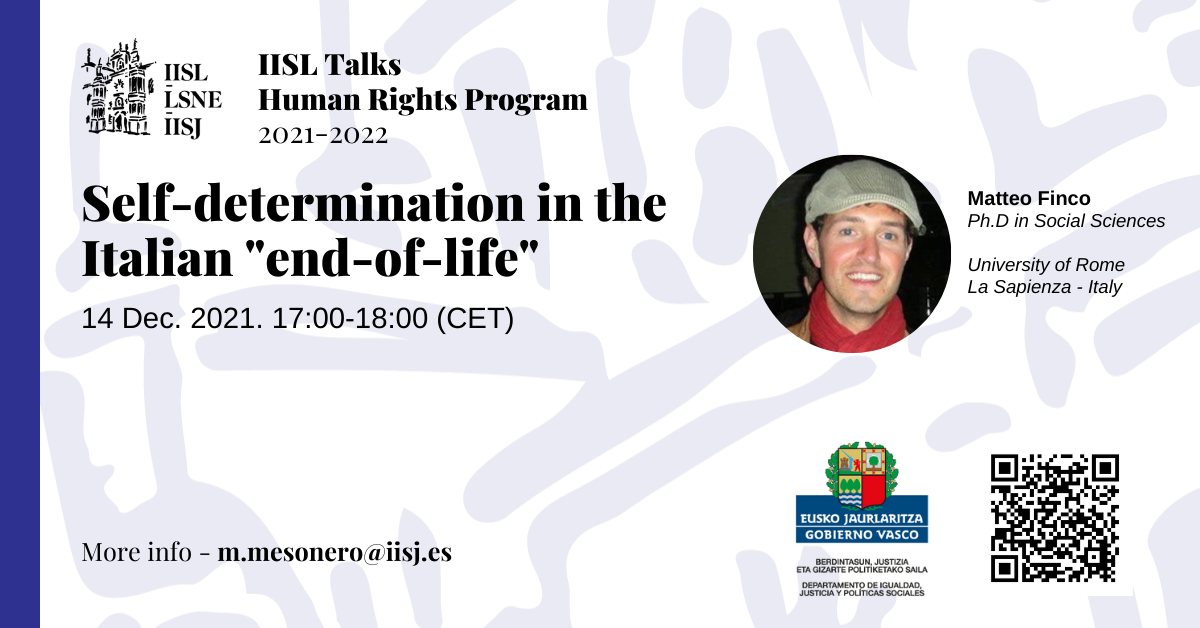
" Individual self-determination – namely the principle according to which everyone is entitled to make decisions about him/herself (to “decide upon his/her own life”) in order to build his/her own unique identity (subjectivity) – has become a central value in modernity. In this sense, health is probably the dimension in which personal decisions and the construction of subjectivity are lived in a more dramatic way, precisely because the individuals’ own life is at stake. Moreover, in recent decades, the possibilities offered by the advances in techno-science, biomedics and genetics – together with a progressive inflation of individual claims, especially claims of rights – have contributed to broadening the horizons of possible decisions and actions regarding self-determination in healthcare. We can see this very clearly in relation to the “end-of-life”, an interesting case study in order to observe the construction of subjectivity in relation with some essential ideas and values (life, health, dignity).
In the last years, Italy faced the development of an important debate regarding the end-of-life which led, in 2017, to the introduction of advance treatment provisions (DAT). Furthermore, various cases have been brought to the attention of the courts, raising concerns among public opinion (Eluana Englaro, Dj Fabo, etc.).
Through the formulation of claims related to health and end-of-life in Italy, this research aims to observe the forms of individual self-determination. This observation will be carried out by taking into consideration the semantics of the end-of-life (assisted suicide, euthanasia, etc.), the existing legal-medical-healthcare devices that allow concrete choices related to individual self-determination (informed consent, treatment provisions), as well as the judicial decisions taken in some selected cases.
The hypothesis is that these claims and legal tools (such as the DAT and informed consent), together with the attitude of the courts to recognize more and more rights in relation to his/her own health, are offering the possibilities for a richer and more complex construction of subjectivity."
